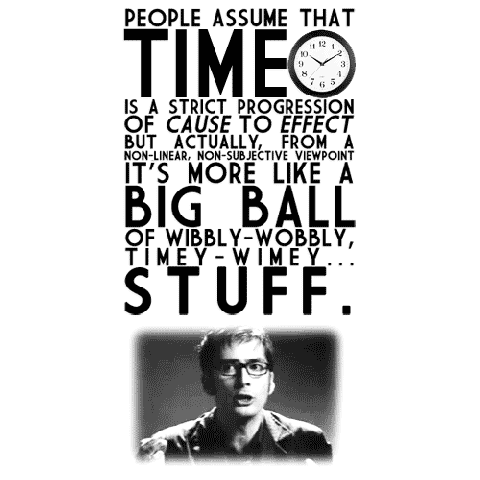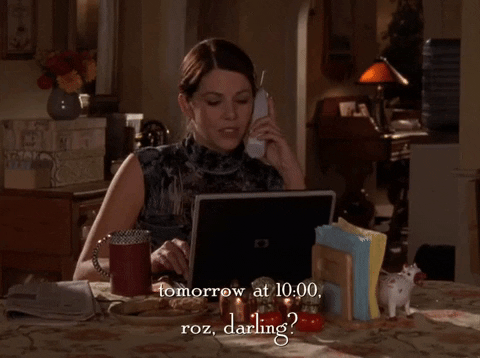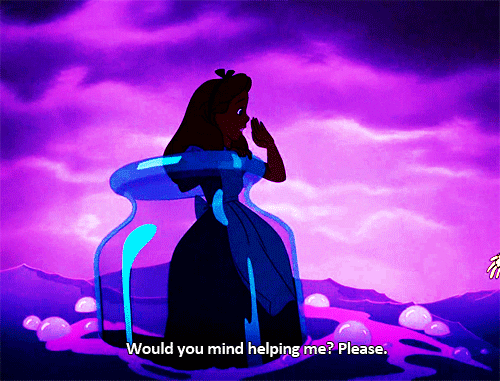Growing up I had no idea I was time blind.
But I was already establishing coping mechanisms. Because I had no internal chronometer to distinguish between 5 minutes and 50 I would prepare for every outing far far in advance and find myself in a state of limbo unable to do anything but wait.
This is effective, but is also a black hole for both energy and time.
People with time blindness tend to be chronically early or chronically late.
It's funny that the same internal experience can result in two such seemingly different behaviors, but it makes sense. One approach to time is a rigid controlled white knuckling. A hyperfocus that saps both time and energy from your life. The other holds on with a looser grip and time slips away.
You might construe the first stereotype as autism and the second as ADHD, but time blindness is an internal experience shared by both.
Now that I’m a mother I simply don’t have bandwidth to white knuckle my way through the day hyperfocusing on time.
I cannot wait in the car for an hour. I do not have an hour to spare.
Not to mention the chaotic element of a small human who has all sorts of urgent needs that can’t always be anticipated.
How do normal people know when to leave the house to arrive somewhere on time?
I never realized I was working SO HARD at something most people find simple.
I was obsessed with planners a few years ago. I never would have described myself as disorganized, but this was down to the fact that I relied on a series of complicated systems to keep track of the most basic things.
Like what day of the week it is. (I’m not kidding.)
When Davy was in his human goat phase I gave planners up. As a result I’ve been flying blind for 3.5 years now. During this time I have learned a few things:
First, go gentle on people who show up late and forget things. They are doing their best.
Second, I really thrive with structure and systems.
It’s impossible to overstate how much having a plan helps me.
Structure frees up my brain for other things in a way that I can only compare to breathing oxygen versus being waterboarded.
I’ve been metaphorically drowning for actual years now.
At first I thought the lesson I was meant to be learning was how to “let go” and embrace fluidity.
There is nothing less helpful you could suggest to a human whose brain needs structure.
The last few months I have been experimenting with themed days. With one focus per day my nervous system has improved dramatically. It also seems to help Davy. (We are both the type of neurodivergent who likes to know what's coming.)
But we all need different things.
If your brain needs freedom embrace that. Don’t let people shame you and push you into a rigid structure if that doesn’t work for you.
When we’re forced to work in ways that run counter to our neurotype it’s important to recognize this is legitimately difficult for us.
Life seems determined to deal out changed plans, external deadlines, and an ungodly amount of urgent paperwork.
When this happens we should treat ourself like we’re doing something really hard (because we are.)
Without a plan my brain feels like it is on high alert all the time just trying to get through the day. Imagine a tennis player bouncing with bent legs ready to sprint in any direction*. That's how I feel without a plan. It's exhausting. And I am far more likely to become overstimulated.
*I know nothing about sports. But we were told to stand this way in Improv class and I quit immediately. 😂
When our nervous system is on high alert we can help ourselves by:
providing sensory support (comfortable clothes, fidgets, movement, regulating environments)
seeking comfort (a cozy blanket, a favorite book or tv show, a cup of tea)
asking for help
finding someone to work alongside us (sometimes this is called “body doubling”)
rewarding our own efforts (treat yo’self)
I could say more, but I’ve run out of time. 😂😂😂
Next week I will be on holiday pause, but I have prescheduled some links for you. (I remember some years my inbox has felt really empty over the holidays when I needed some company.)
Let’s Discuss
Do you experience time blindness? How do you navigate space and time?
Cheers,
Sarah









I thought I was going to keep my word for a second year last year and then a new one magically showed up... wondering if the same thing will happen this year... Time is so tricky, seasons are easier.
'Time blind' - this is so fascinating, Sarah! I'm not time blind, but I can partly identify, because I call myself 'path blind'. I'm a disorient (yes, I've made up that word!) in that I get lost extremely easily, and I don't recognise many places that I've been. Frustratingly many regular journeys I make feel like brand new ones, because they're not familiar even when I know that I know them!
Such an interesting post - thank you. 🙂